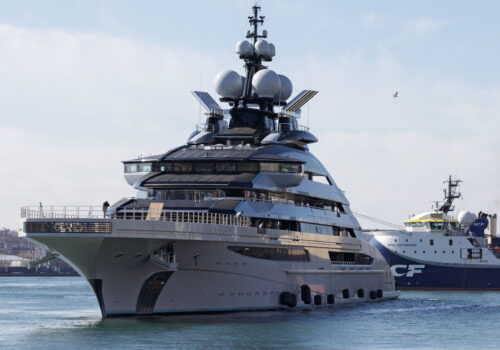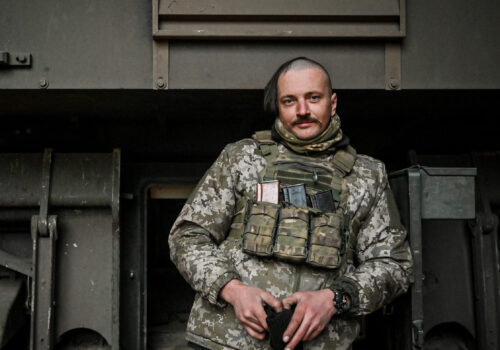As Russia’s full-scale war on Ukraine crosses the 50-day mark, audacious operations continue to make global headlines. From Ukrainian special forces recapturing Kremlin-ally Viktor Medvedchuk to reports that Ukraine may have destroyed the Moskva, flagship of the Russian Black Sea fleet. With the initial Russian campaign to overthrow the Ukrainian government having failed, Moscow’s forces are expected to refocus their efforts on Ukraine’s east and south. What do Ukraine’s operations tell us about the next phase of this war?
Ambassador John Herbst, senior director of the Atlantic Council’s Eurasia Center, moderates a conversation with General (Ret.) Philip Breedlove, former Supreme Allied Commander Europe, Admiral (Ret.) James G. Foggo, dean of the Navy League of the United States’ Center for Maritime Strategy, Dr. Hanna Shelest, director of security studies at the Foreign Policy Council “Ukrainian Prism” and editor-in-chief at Ukraine Analytica, and Ambassador William Taylor, vice president for Russia and Europe at the US Institute for Peace.
This event will not feature an in-person audience. You will be able to join via desktop or mobile app, through your web browser, or by phone. To join the question and answer period, you must join by app or web.
Register below for details on joining the virtual audience.
Follow us on social media
and support our work
issue spotlight

Europe in crisis
War in Ukraine
Experts from across the Atlantic Council are assessing the consequences of Russia’s February 2022 invasion, including what it means for Ukraine’s sovereignty, Europe’s security, and the United States’ leadership.




